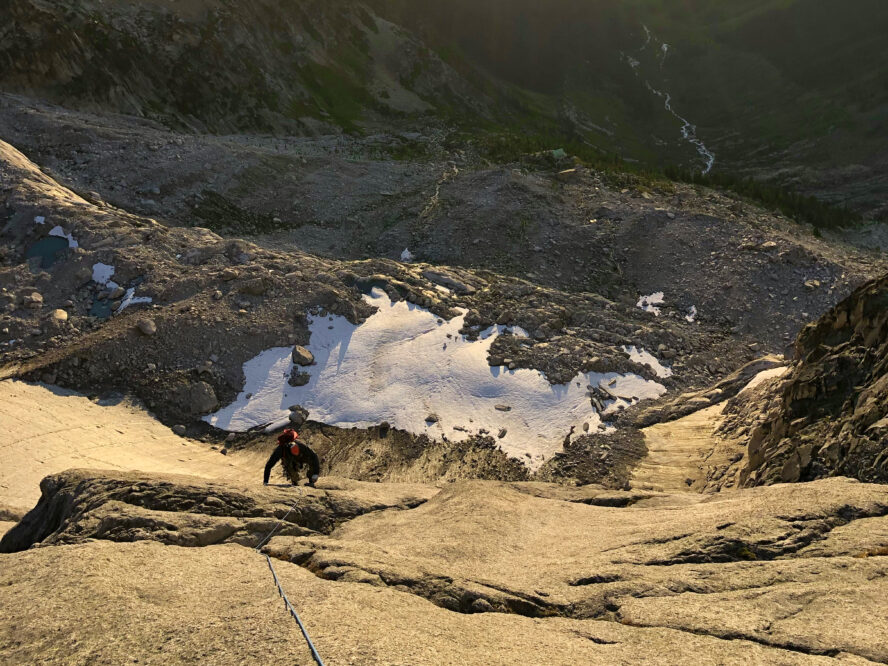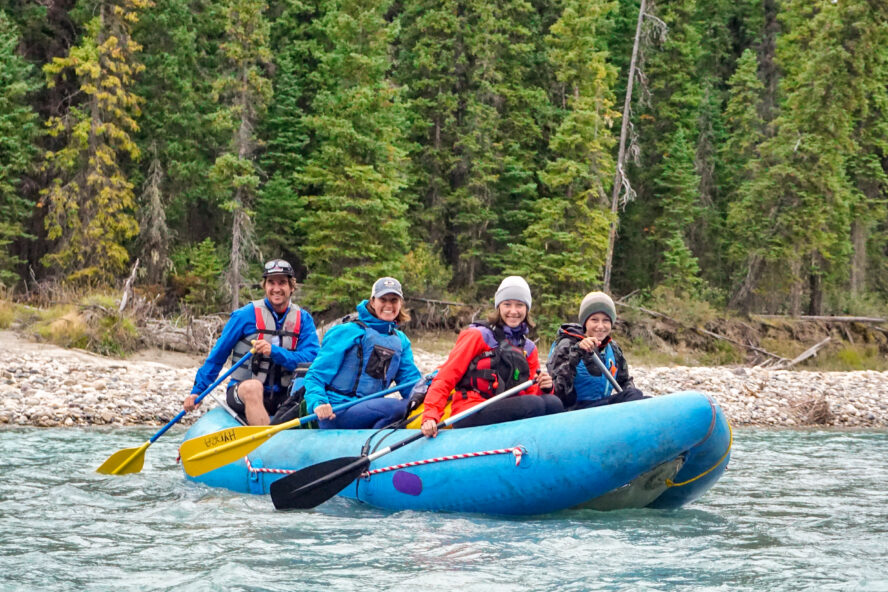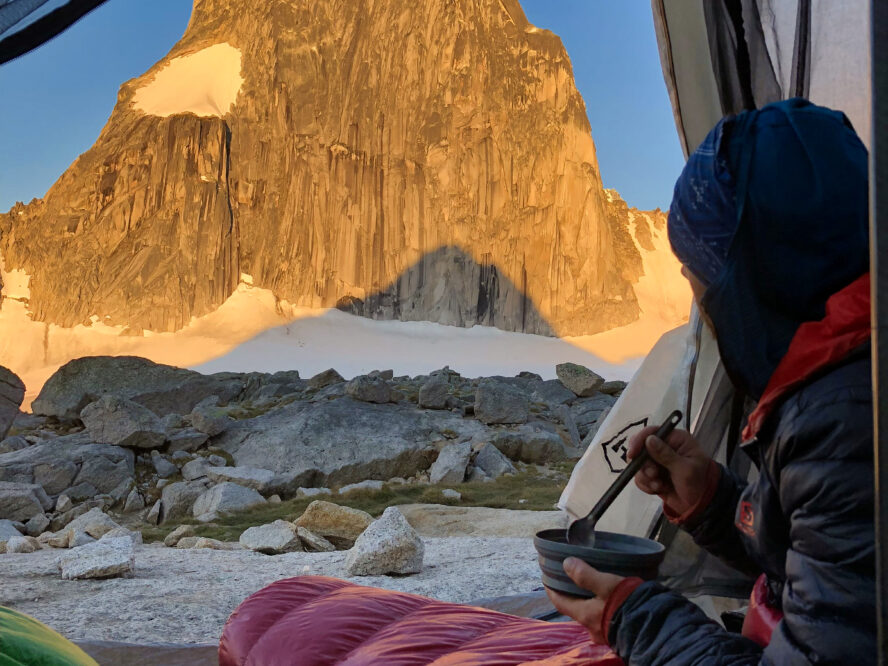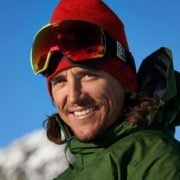Right off the bat, I want to be totally honest: COVID-19 completely flipped my world upside down. Watching everything I take for granted stripped away made me begin to question the things I’ve held close for so long. During this time, I’ve come to realize what matters most. I guess, sometimes you only know something is important when it’s taken from you. As life resettles into the new normal, I’ve had a chance to look at my values, and I want to rebuild moving forward with them more in mind. To that effect, I’ve developed an idea that I hope will challenge adventurers like myself to reevaluate their relationship with the outdoors. I’m calling this idea the “300-Mile Adventure Diet.”
Many of us need adventure in our lives; it fuels our spirits and energizes our souls. To go without for the duration of this pandemic would be tantamount to spiritual suicide. While I sit at home isolating, I am daydreaming of my next days out and imagine many others are too. We have all heard of the “100-Mile Diet,” and I want to borrow from that idea and propose something new for adventurers post-COVID. I want to recommend the 300-Mile Adventure Diet — the approximate distance that one full tank of gas will take you.

Lessening environmental impact
Before I expand, let me quickly introduce myself. My name is Greg Hill, and I’m a Canadian ski guide and professional skier. My main passion has been climbing and skiing mountains, yet what I really am is a lover of nature in all its forms. For a while now, I have been advocating sustainable adventure through my work — exploring different ways to lighten my footprint while still living an adventurous life. From lifestyle changes at home to only accessing my trailheads in an electric car, I have worked at lessening my impacts. There is no doubt that I will never be perfect, but progressing has been really invigorating. One of the discoveries I had while climbing 100 summits electrically was the rewards of backyard travels. This pandemic has caused me to reflect more on these homegrown experiences, and it’s from this that the Adventure Diet idea was born.
I have adventured far and wide, skiing and summiting peaks all around the world. From Japan to Norway, to the French Alps and just about everywhere in between, I’ve skied it all. Yet, what I’ve realized is that those closer to home adventures tend to be the ones that resonate for years. The amazing times I’ve had in remote places are incredible in the moment, but you never see them again. With backyard adventures, you are in constant reminder of them. You look over and see that mountain you’ve summited or that river you rafted on, and immediately the memory of that day is brought back into focus and savored again. There is so much more long-term value in these close-to-home adventures.
A new way to adventure
It is so easy to glorify far away travels, and these days, it’s relatively easy to plan and execute them. We often ignore the close at hand because it may not seem as romantic as travelling across the world to an exotic location. In truth, our backyards are just as worthy of our attention. Perhaps they don’t feel as exotic, but they seem like the best bet in planning my next adventures. There are so many unknowns with this pandemic, and it only stands to reason that the more elements we can control in our adventures, the more likely we will be able to pull them off. By planning trips within this 300-mile radius, we can almost guarantee that we will be able to make them happen. By keeping our footprints small and our impacts few, we’re able to not only help out Mother Nature but also help to stop the spread of the virus so that we can more quickly get back to doing the things we enjoy — whether that’s travelling far and wide or remaining close to home.

Managing risks in an uncertain future
As a mountain adventurer, I have always examined unknown hazards and decided on the actions that need to be taken. Is a slope safe from avalanches? What is the most reliable way to get to the top of that mountain? With COVID likely playing a factor over the next year, I have to analyze my actions and make them as responsible as possible. I’m taking the risk assessment tools I utilize in my everyday guiding life and applying them to our current situation. By limiting the distance I travel, I can reduce my contact with other people, thus limiting my exposure — a sort of avalanche slope avoidance, to put in guiding terms.
Looking at this situation through a hazard mitigation lens, there are many ways to make sure that I am as responsible as possible. By driving within this radius, there will be minimal contact with others: one gas station visit (or in my case, a car charge!), a stay at one hotel, bed and breakfast, or even better, tenting in a campground. The idea is to use one campground or hotel as the adventure base and to explore from there. It’s smart to plan ahead, and I plan to bring all of my food with me so that I am not shopping and wandering around too much. The idea is to limit touch points as much as possible.
Keeping it local doesn’t mean losing out on adventure
By keeping it local, I will be investing my money into my local economy. It will also cost a lot less to adventure locally, which is great since I cannot justify large expenses on non-essentials in these uncertain times. Although adventure feels essential, after losing it, I know it’s not, though it is very important to me. Because of this importance, I need to explore this idea some more in order to create a safe way to continue doing what I love.
By opening up Google Earth or Gaia and doing a 300-mile radius search, I realize how many different styles of adventures I can go on. Part of this might be to look at what I haven’t done. One of the first things I stumbled upon is a bike trip around the Kootenays, just south of where I live in BC. I have started to organize this trip, and it’s exciting. It’s a 500km loop that will take me slowly around some beautiful places in my backyard. I cannot wait!
It is a great time to try the trips and experiences that we haven’t had before. It’s so easy to keep the blinders on and keep doing the same thing. Yet this upending of what we have done for years is letting me rethink. I will take my family on our first backpacking trip through an amazing place that they have yet to see. I know this will allow us to connect as a family and build on our love of the outdoors together. I wonder what other trips are in my backyard that I haven’t yet explored. The more I look inside this radius, the more I see what I have yet to experience.

Guided adventuring offers an extra level of safety
I discovered some horse riding trips nearby; something I have always dreamed of, yet never done. Perhaps that could be another trip for my family this summer. Since it is not something I know anything about, I plan to hire a guiding company to make it safe and well organized. Being a guide, I understand that it’s best to hire experienced people to maximize our own experiences and ensure our safety in what may turn out to be unfamiliar activities.
The more I explore this 300-Adventure Diet idea, the more I see its merit. You might look at where I live and say, “ Well, it’s easy for you, Greg, you live in the middle of the mountains and have an endless playground at your fingertips,” which is absolutely true. Yet the idea is the same, to look at our lives differently and explore more in our backyards. I can guarantee that you will be rewarded for years to come if you learn more about what is close to you. These memories will resonate with you for a long time. And isn’t the memories we make all part of why we adventure in the first place?
So, while you’re stuck at home, pining over that overseas climbing trip that got cancelled or those surfing lessons in Baja that you won’t be taking this year, consider this: where can you get to on a full tank of gas. While it might not seem that you can get very far, when you start to explore the possibilities, you’ll see that the potential is endless. Adventure is there, waiting for you, you just have to go out and get it. Just don’t go too far — 300 miles should be all that you need.


